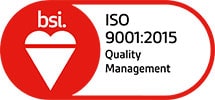The UK manufacturing sector is undergoing significant transformation, and as a recruitment agency specializing in this space, we at Scantec are acutely aware of the factors shaping the current job market. Understanding these key areas is essential for both employers looking to attract top talent and candidates seeking opportunities in this evolving landscape. Below, we explore three major areas that are currently influencing the manufacturing recruitment market.
1. The Skills Shortage
One of the most pressing challenges in the manufacturing sector is the ongoing skills shortage. As automation and advanced technologies like AI and robotics become integral to manufacturing processes, the demand for a highly skilled workforce has surged. However, there is a gap between the skills required and the available talent.
For employers, addressing this gap means rethinking how they approach recruitment. It's not just about finding candidates with the right technical skills; it's also about investing in training and development. Candidates are increasingly looking for roles that offer growth opportunities, and businesses that provide clear career pathways and upskilling initiatives are likely to attract and retain top talent.
2. The Impact of Brexit
Brexit continues to have a lasting effect on the UK’s manufacturing industry, particularly in terms of workforce availability. Many manufacturing companies relied on workers from the EU, and the end of free movement has resulted in a reduction in the number of EU nationals available for roles in the UK. This has compounded the skills shortage and left employers facing recruitment challenges.
In response, businesses are reassessing their recruitment strategies. Some are looking to expand apprenticeships and training programs for domestic workers, while others are considering overseas talent pools from outside the EU. As a recruitment agency, we’re helping clients navigate these changes by identifying alternative talent sources and adapting to the new regulatory landscape.
3. Sustainability and Green Skills
Sustainability has become a core focus for the manufacturing industry, driven by both regulatory pressures and consumer demand. Many companies are transitioning to greener practices, reducing carbon footprints, and embracing circular economy principles. As a result, there’s a growing demand for candidates with "green skills" — expertise in areas like renewable energy, waste management, and sustainable production processes.
For job seekers, this shift presents a unique opportunity. Candidates who are trained in environmentally conscious manufacturing practices or who possess a forward-thinking mindset towards sustainability will find themselves in high demand. Employers, on the other hand, need to ensure they’re offering roles that appeal to this new generation of workers who prioritize sustainability and social responsibility, especially those with expertise in areas like renewable energy, waste management, and sustainable production processes.
Conclusion
The manufacturing recruitment landscape is changing rapidly, influenced by a combination of technological advances, political shifts, and evolving environmental concerns. At Scantec, we understand these dynamics and are here to help both employers and candidates successfully navigate this complex market. Whether you're looking to fill critical roles or find your next career opportunity, staying informed about these key trends will be vital for long-term success.
For more insights into the latest trends affecting manufacturing recruitment, or to discuss how we can help with your hiring needs, get in touch with our team at Scantec www.scantec.co.uk.
Navigating the Manufacturing Recruitment Market: 3 Key Areas Impacting the Industry
07-10-2024
Sector







